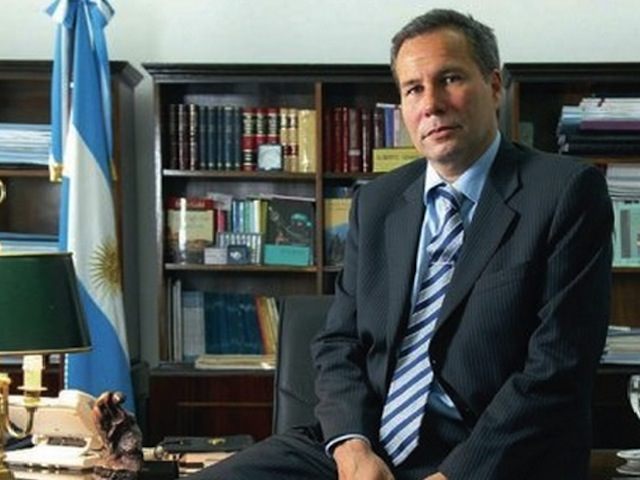NEW YORK, New York – The last word spoken in Los Abandonados, a documentary detailing the multiple investigations of the worst terrorist attack in Argentina’s history and the death of the prosecutor who believed he had found the truth, is “no.”
It is not an optimistic film.
Yet at its New York premiere, director Matthew Taylor expressed a palpable optimism impossible for the Argentine–and American–right-wing regarding the potential for justice months earlier. Since its premiere in October, Argentina has elected a right-wing president, who has vowed to cut ties with Iran and investigate the death of prosecutor Alberto Nisman. Nisman argued before he was found dead of a gunshot wound to the head that the leftist Argentine government had protected Argentine terrorists. There now exists a sense among those who wish to see justice that the revelations Los Abandonados details will have their day in court.
And what revelations they are. Los Abandonados begins its tale in Buenos Aires in 1994, at the site of the Argentine-Israeli Mutual Association (AMIA). A bomb has leveled the building, killing 85. The attack will remain the deadliest act of terror in the Western Hemisphere until the al-Qaeda attacks of September 11, 2001, storm New York and Washington, D.C. After multiple failed investigations due to sloppy work–following leads with little evidence, police blatantly disregarding pivotal evidence at the scene of the crime–Néstor Kirchner, President Cristina Fernández de Kirchner’s predecessor and late husband, orders Alberto Nisman to take up the case. Nisman spends a decade researching the case and convinces Interpol to issue five red alerts against high-ranking Iranian government figures.
On January 18, 2015–the day before he is to testify before the Argentine Congress that Fernández de Kirchner lobbied Interpol to take down the red alerts in exchange for oil bargains from Iran–Nisman’s body is found lifeless, in a pool of blood in his own apartment. Police are quick to deem the death a “suicide.”
The film, expertly narrated by those who knew Nisman, journalists who helped investigate the AMIA bombing, and archive interviews with Nisman himself, served upon its release as a cry for help to the Argentine people to not let these crimes go unsolved, to not let the Iranian orchestrators of a terror attack use their leftist allies to silence those seeking justice. Now, it serves as a starting point from which the new Argentine government may begin seeking justice for those killed.
Naturally, multiple high-level Fernández de Kirchner officials have condemned the documentary.
When Los Abandonados was first released in October, Argentines were mulling an impending vote after 12 years of leftist rule and friendship with the government of Iran, under President Fernández de Kirchner. Her handpicked successor, Daniel Scioli, was leading his conservative challenger Mauricio Macri 42 percent to 29 percent. Scioli was confident enough in his success that he skilled a presidential debate, telling reporters, “My plan is clear, the rest is babble.” Scioli had made no indication that a reopening of the investigation into the AMIA bombing would happen on his watch, much less an investigation into Nisman’s death and his allegation that Fernández de Kirchner personally helped protect the terrorists responsible for the 1994 attack.
Macri, meanwhile, vowed to overturn a “memorandum of understanding” Fernández de Kirchner signed with the government of Iran, which allowed Iranian officials to essentially investigate themselves regarding the AMIA bombing, essentially guaranteeing the freedom of those responsible. Macri invited Nisman’s ex-wife and daughter to his final debate against Scioli as distinguished guests. The near-universal conclusion at the end of Los Abandonados–that the highest levels of Argentine government were indelibly tied to Iran and, thus, unreliable for finding justice in this case–seems suddenly overly dire. I personally left my second viewing feeling far less resigned to Nisman’s death remaining an unsolved mystery than I did my first one.
The Argentine people rewrote their own ending.
That is not to say the film’s conclusions are obsolete. Quite the contrary. It serves a different purpose now, not just to be the lone voice telling the story Nisman may have been killed for telling, but to be a poignant reminder of why Macri must be held to his promises regarding both the AMIA bombing and Nisman personally. Macri is yet to assume the office to which he has been elected, and until he revokes the memorandum of understanding with Iran and replaces the Kirchnerist legal team running the Nisman investigation today, the nation’s newfound hope will remain just that. He has a mandate from the Argentine people, who took to the streets of Buenos Aires, where Macri is still mayor, in the hundreds of thousands calling for justice against radical Islam. Now, he must act on it.
And while Argentina waits for Macri’s time to come, the muddled, complex story of the victims of the AMIA is now more easily accessible to the world, thanks to this film. Watch the trailer below, or purchase the film here.

COMMENTS
Please let us know if you're having issues with commenting.